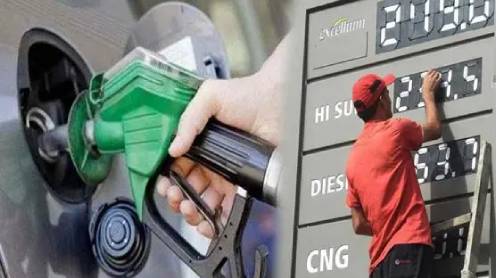Concerns about the economy and new banking sector jitters have sent oil traders rushing for the exits and cutting their bullish bets on crude oil again. As more speculators leave the market – with open interest in U.S. crude oil futures at its lowest in three years – prices are set for more extreme volatility.
WTI Rough, the U.S. benchmark, saw the greatest drop in the net long position – the distinction among bullish and negative wagers – in about a month and a half in the week to May 2, information from the U.S. Product Fates Exchanging Commission (CFTC) displayed on Friday.
The past huge drop in bullish wagers had occurred just before early April when the OPEC+ bunch astonished the oil market by reporting unexpected slices to creation among May and December 2023 to guarantee the “strength of the market.”
The OPEC+ move consumed the short venders, finishing the so-called commitment of Saudi Energy Pastor Ruler Abdulaziz receptacle Salman from 2020, “I will ensure whoever bets on this market will be ouching like damnation.” After the creation cuts were declared, costs spiked for quite a long time until the center of April, before bad opinion about the economy and disappointing Chinese recuperation took over once more and drove costs down to the low $70s. WTI Unrefined even fell beneath the $70 a barrel mark a week ago.
Examiners have been reliably surprised in the beyond two months, and many have now selected to remain away. Lower open revenue and liquidity in the market will undoubtedly make cost swings significantly more limit, as per experts. “To put it plainly, the oil market needs more players on the field,” Michael Tran, overseeing chief at RBC Capital Business sectors, told Bloomberg.
Be that as it may, in the week to May 2, cash directors cut their long positions and added short positions, cutting their net bullish wagers in both WTI Rough and Brent Unrefined prospects and choices contracts, information from trades showed. Driven by weighty selling in energy, bullish wagers on the significant items fates plunged by 33% in the most recent detailing week to the least since June 2020, Ole Hansen, Head of Ware Methodology at Saxo Bank, noted. Brent, WTI, and European gasoil – the intermediary for diesel – were the hardest hit by selling.
The specialized disadvantage break constrained examiners to cut their net long situation in WTI Unrefined by 36,000 parts and in Brent by 69,000 parcels in the week to May 2. The joined net long situation in the two most significant unrefined petroleum prospects and choices contracts was sliced by one-fourth, while the net short situation in ICE gasoil fates kept on enlarging to a new high in over seven years. “A horrible two-month time frame for energy dealers went on in the week to May 2,” Hansen remarked.
“During a multi week time span the raw petroleum market has seen a financial emergency, an Opec cut driving a spike and resulting center around hole shutting, and new interest concerns,” he added. Examiners have answered by selling 393,000 parcels and purchasing 213,000 parts, the heft of these at unfruitful levels, as per Saxo Bank’s head of product technique. The economy in the U.S., the speed of the Chinese recuperation, and the forthcoming OPEC+ meeting toward the beginning of June will keep on driving oil markets, while new bank runs could rapidly harsh feeling again before very long.





